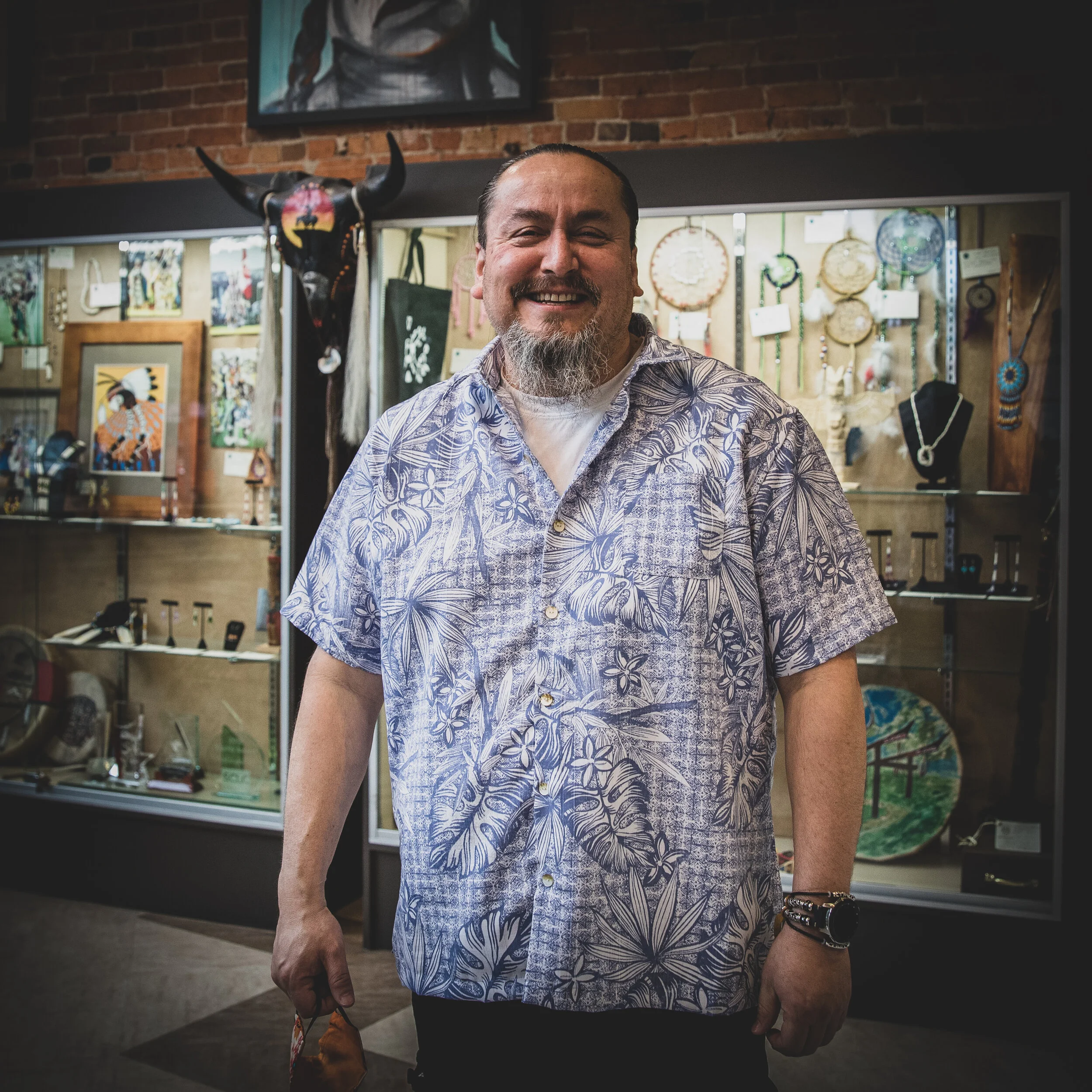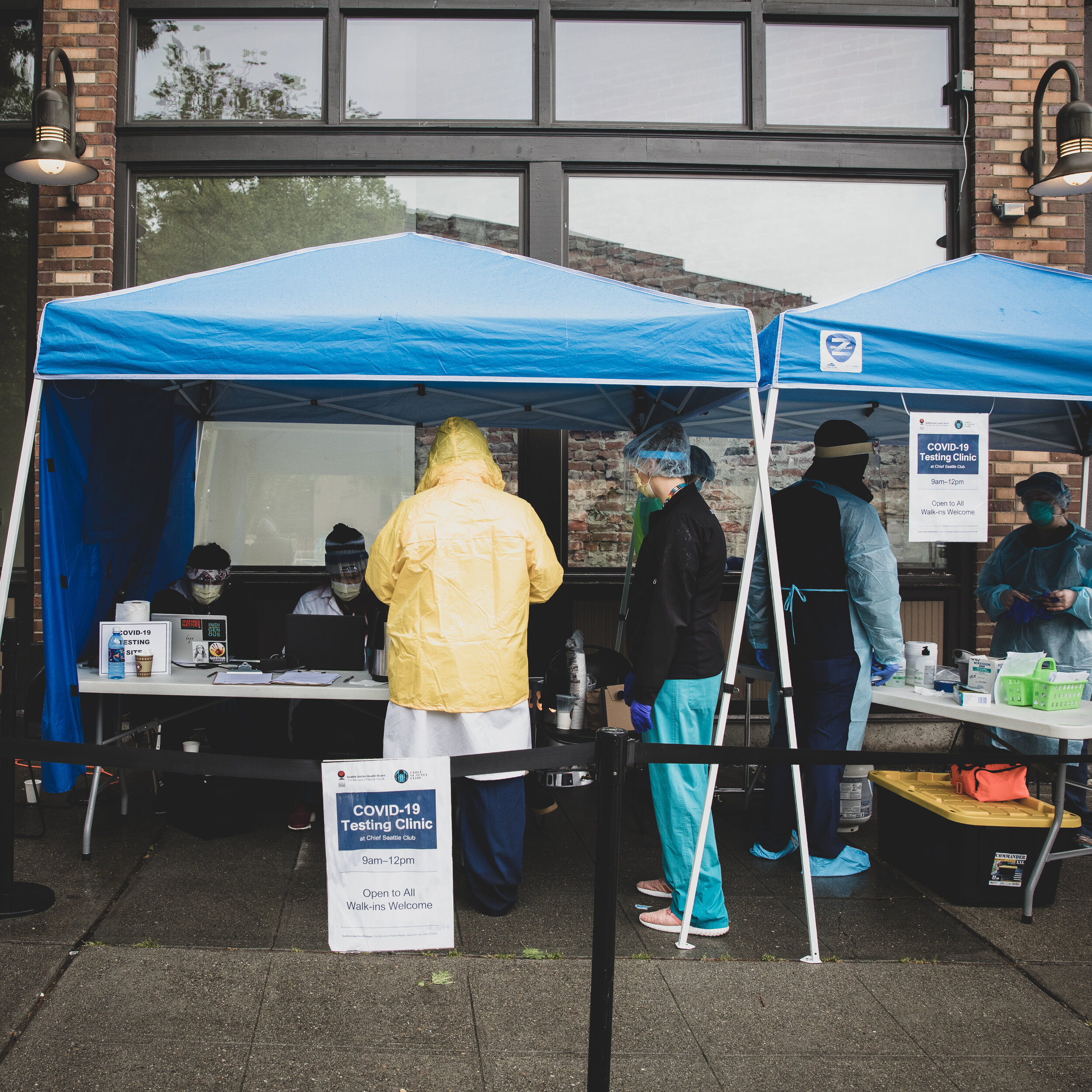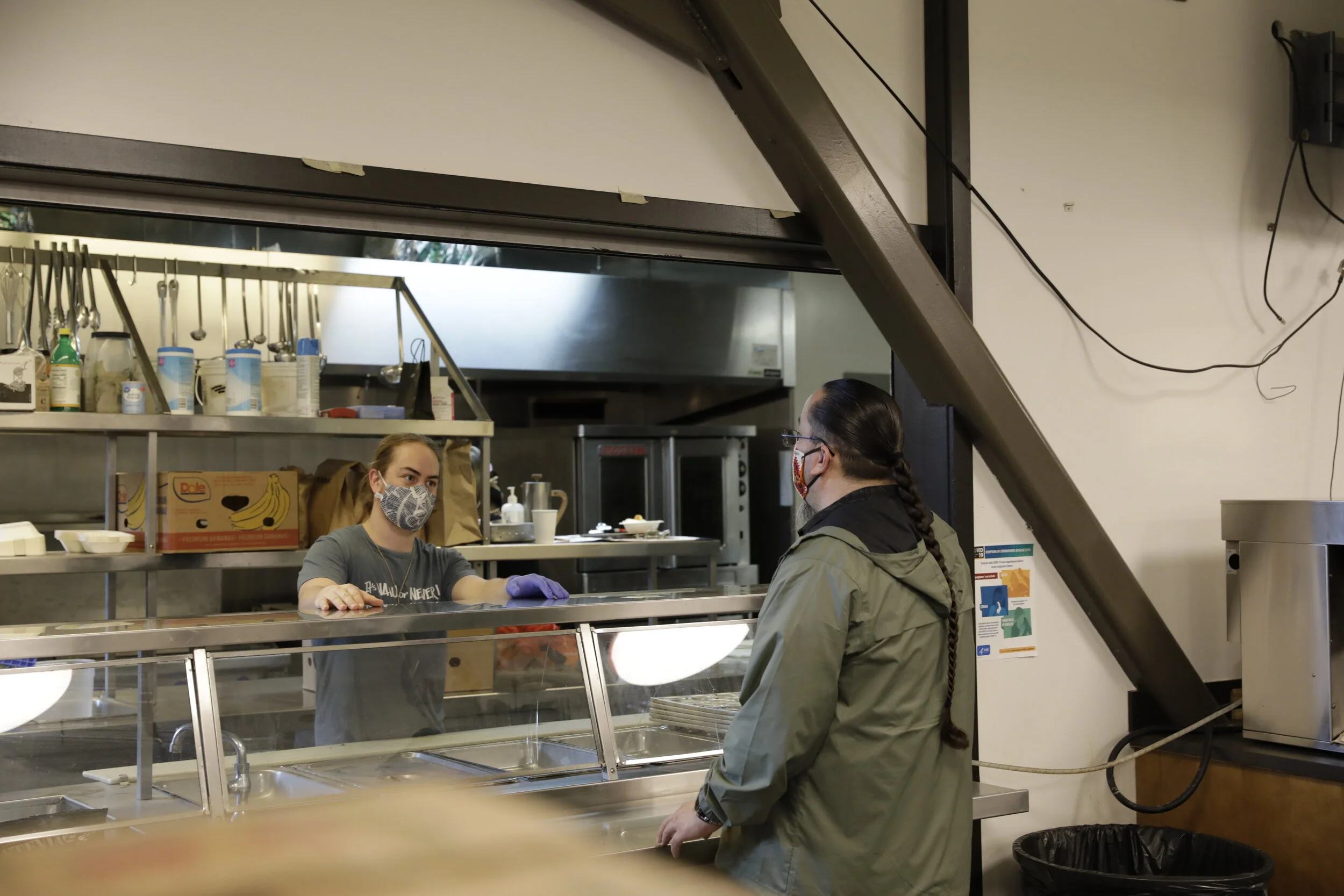Chief Seattle Club - Derrik Belgarde
Derrik Belgarde - Chief Seattle Club
Derrik Belgarde - Interview Transcript
What we do, we provide an emergency service, right? I mean, we provide a wide range of services but basically the core of what we do is our day shelter, it's respite area for people to kick their feet up who've been walking the streets, the homeless, chronic homeless, provide hot meals, showers, laundry, all those day center-type programs. Beyond that we also have housing assistance, we get people housed, not just the chronic homeless, it could be a family just short-lived homeless experience, suddenly just been kicked out of their place or something, or in need, whatever, find themselves in hard times. So we cover the whole spectrum of homelessness. Also, we have other services too. We get people IDs, birth certificates, anything you need. Like, if you have barriers to appointment, barriers to housing, barriers to anything, we have flexible funding we can get. And it's not just geared towards just homelessness. Anybody in the Native community, we try to support.
Because of COVID and the isolation, and the social distancing, and limited congregating, and all that stuff, we've really, for the most part, as you can see, we've shut our building down, I mean, our doors. Besides the staff that are in here, we're allowing two people at a time, two of our members at a time, two women, two men at a time, to come and use the restrooms. Because of that, there's a 10-minute limit to letting them use the restrooms. So the showers are still shut down. Also, we have staff down there, it's one floor below, so getting that hot, humid, steamy air is probably we're worried about an incubation for virus bacteria so we just shut our showers down. So it's just bathroom use, little fresh hygiene cleanup. But they get their 10 minutes and then go out, the next person comes in. So other than that, and then they also can check their mail. But other than that, that's all the services we're providing indoors.
About the time of the stay-at-home order, we just started identifying elders, and those with at-risk already, you know, diabetics, people who have maybe cancer, all those underlying conditions that make you higher risk of catching COVID or dying from COVID. We just started identifying all them and just started putting them in motels. And we have probably about 35 people in motels now that we're paying for.
Some of the local areas where people used to once get hot meals, now, they've shut down services, so they've really came over, and it's a great service we're providing for the community but at the same time, we're seeing few of our people come in. We're trying to target our Native American folks and we serve about 200 meals, but like I said, maybe 30% are our people and the rest is from the larger community. So that's brought some hardship on us mentally and emotionally. We're like, "Where's our people at?" We need to increase our outreach to the encampments, to the other shelters, find out where our people are at and make sure they're okay. And that's gonna be hard 'cause at the same time you don't wanna send crews out to encampments, increase their risk and exposure, you know, these things. So it's tough, it's a tough time, yeah.
The homeless folks, whether they're native or not, don't like going to clinics, don't like going to that, so all the places that are offering COVID testing, chances of getting people to go there is probably slim to none. So a lot of outreach has to be done for COVID testing to get that homelessness group. And so saddling help boards here to get help with our folks. They're testing anybody though. Anybody who walks up, they're gonna test. You don't have to be Native American, you don't have to be a club member here, they're just testing anybody. But they're coming on Tuesdays and Thursdays between nine and noon.
Our mission is to heal basically the community, heal the Native American spirit, the urban Native American spirit, really, to provide a sacred space, to affirm, nurture, and renew the spirit of our people. Not everybody we serve is homeless or chronic homelessness 'cause like I said, it is a hub, it's a social hub to heal that spirit and place where Native Americans come and be with other Native Americans. That's what we're trying to do. And I think a lot of the Native organizations here in Seattle, not just focus on homelessness, are trying to figure out how we bring our larger native population and bring that sense of community back where we think on a communal sense that we try to support each other and help each other out. We're all trying to figure out how to bring it back and heal it on a spiritual level.








